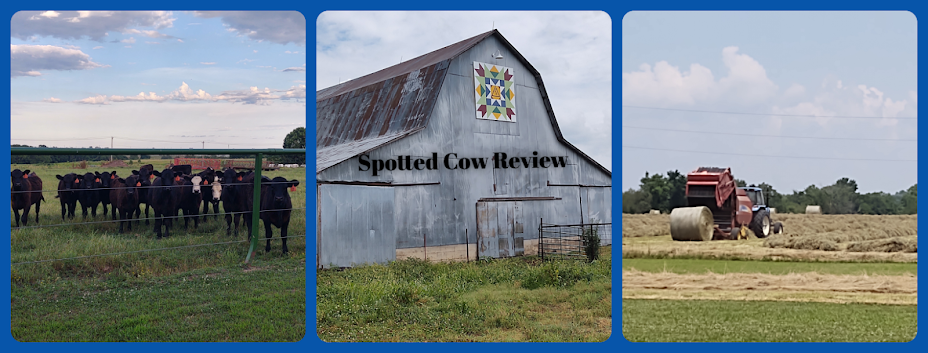
Planning for transition is part of our dairy farm routine. Preparing a dairy cow for the birth of a calf includes a two month rest period before she gives birth. On the farm we call this transition the "dry period". During this sixty day dry period the cow will rest in the pasture and be fed a specially designed low energy diet that provides adequate protein,vitamins and mineral to maintain body condition . The inputs of good nutrition and health care during the dry period will be returned by a more productive and healthy cow after giving birth.
We had three cows this week that needed to begin their sixty day dry period. After the morning milking, each cow was dry treated. Because cows are most susceptible to environmental mastitis infections during this rest period,dry treating a cow includes treating all four quarters with an approved long-lasting antibiotic product. When the cow calves and returns to the milking herd, the milk is thrown away until it is tested by our dairy cooperative lab and shown to be free of antibiotic because any milk that tests positive for antibiotics cannot be sold to the public.
After dry treatment was completed with a prescribed vitamin shot and wormer, Cody loaded the cows into the trailer and moved them to the dry pasture located a couple of miles from the dairy to begin their days of rest and rejuvenation. These cows will be fed and monitored daily. Two weeks before they are expected to give birth, we will move them to the pasture by our house. Since we have calves born through out the year, we are basically on pasture call twenty four hours a day,seven days a week!
It's a fact--healthy cows produce more milk. Our commitment to providing high-quality milk begins with taking good care of our cows everyday--24/7!





